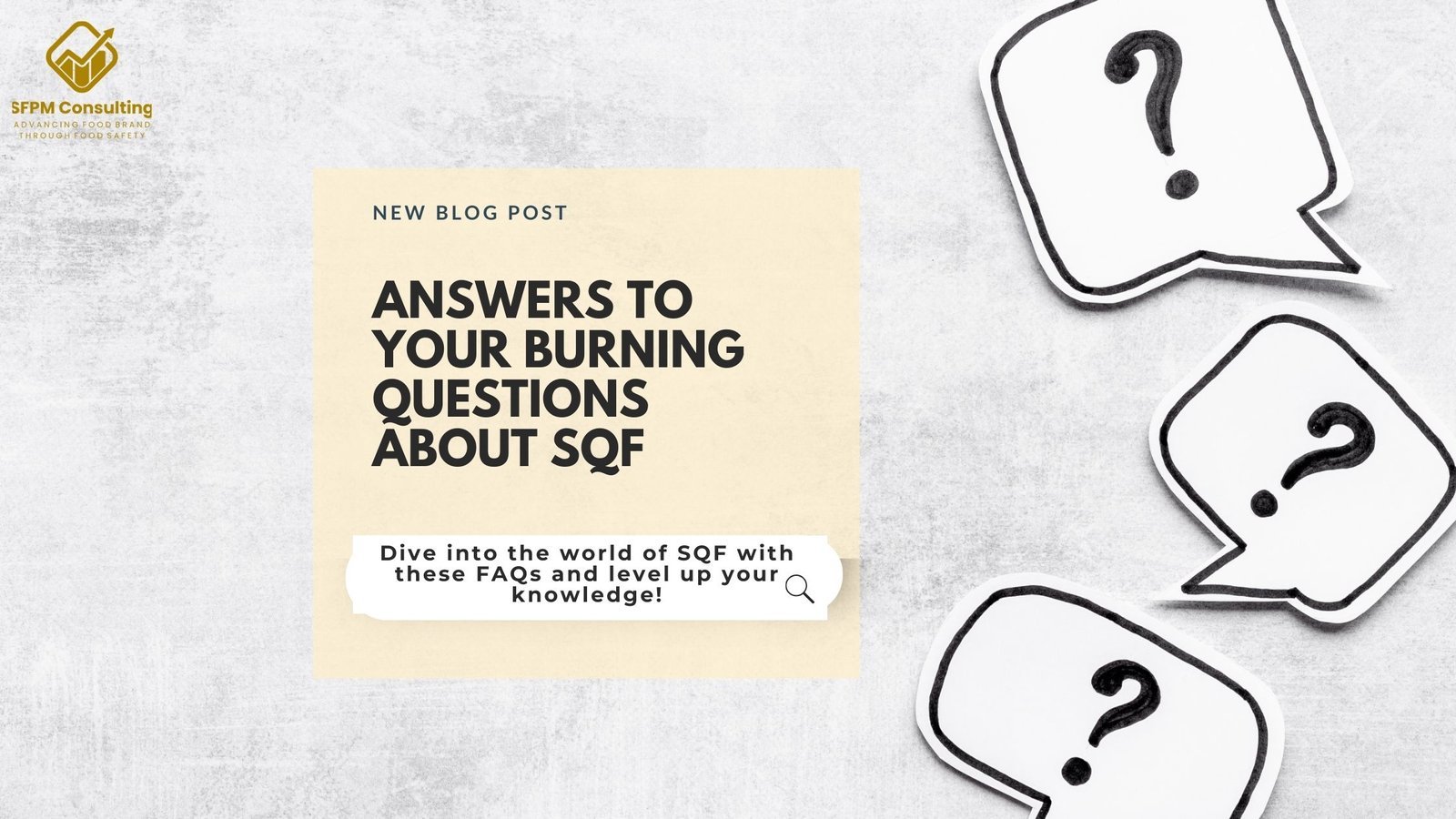
This article will address some of the most common questions and concerns people have about SQF certification. Whether new to SQF or looking to enhance your knowledge, we’ve got you covered. Let’s dive right in!
1. What is SQF?
SQF stands for Safe Quality Food. It is a globally recognized food safety and quality management system that helps organizations ensure the safety and quality of their food products. SQF certification is granted to companies that meet the rigorous standards of the Safe Quality Food Institute (SQFI).
2. Why is SQF important?
SQF certification is important for several reasons. Firstly, it demonstrates a company’s commitment to producing safe, high-quality food products. It helps build trust and confidence among consumers, retailers, and regulatory bodies. Additionally, SQF certification can open up new business opportunities, as many retailers and buyers require their suppliers to be SQF-certified.
3. How can I get started with SQF?
Getting started with SQF can seem overwhelming, but it can be a smooth process with the right approach. Here are a few steps to help you get started:
- Educate yourself: Familiarize yourself with the SQF Code and its requirements. The SQF website and training courses are great resources for learning.
- Assess your current practices: Conduct a gap analysis to identify areas where your current practices may fall short of SQF requirements.
- Develop an implementation plan: Create a roadmap to guide your organization through implementing SQF standards.
- Train your team: Ensure all employees are trained on SQF requirements and understand their roles in maintaining food safety and quality.
- Implement and maintain: Implement your plan and continuously monitor and improve your processes to meet SQF standards.
4. How long does it take to become SQF certified?
The time it takes to become SQF certified can vary depending on several factors, such as the size and complexity of your organization and the readiness of your current practices. On average, the certification process can take anywhere from 6 to 12 months. It is important to allocate sufficient time and resources to ensure a successful implementation.
At SFPM Consulting, we can speed up your certification process by helping you build an SQF program, typically within 4 weeks or less.
Find a Time with Felicia Loo and let us help you speed up your SQF certification process.
5. Can I implement SQF on my own, or do I need external help?
While it is possible to implement SQF independently, many organizations find it beneficial to seek external help.
Registered SQF Consultants such as Felicia Loo, can provide valuable guidance and expertise throughout implementation. We can help you navigate the complexities of the SQF Code, conduct gap analyses, and develop robust food safety and quality management systems.
6. How much does SQF certification cost?
The cost of SQF certification can vary depending on factors such as the size and complexity of your organization and the level of assistance you require. It is best to contact SQF certification bodies for a detailed cost estimate tailored to your specific needs.
7. Is SQF only for large companies?
No, SQF is not just for large companies. It applies to organizations of all sizes, from small family-owned businesses to multinational corporations.
The SQF Code is scalable and can be tailored to meet the needs of different types and sizes of food businesses.
In fact, Felicia Loo specialized in setting up small-scale food manufacturers for SQF success. If you are a small manufacturer, check out our portfolio on youtube to check out how we help our past clients in their project.
8. How often is SQF certification required?
SQF certification is valid for one year. To maintain certification, organizations must undergo annual audits to demonstrate ongoing compliance with SQF requirements.
These audits are conducted by third-party certification bodies approved by the SQF Institute.
Be aware of the unannounced audit requirements. Our clients never have to worry about unannounced audits as we help them manage the expectations and requirements.
We hope this Q&A session has provided you with valuable insights into SQF certification. Remember, SQF is not just a certification; it is a commitment to food safety and quality.
By implementing SQF standards, you can enhance the trust and confidence of your customers and open up new opportunities for your business.
If you have any more questions or need further assistance, don’t hesitate to Find a Time with Felicia Loo. Good luck on your SQF journey!



